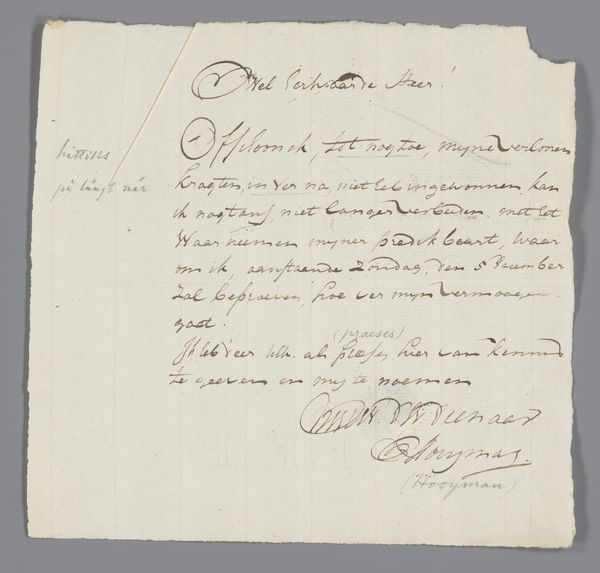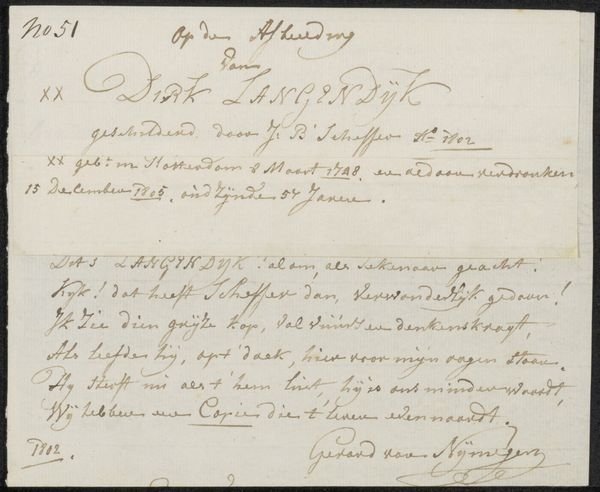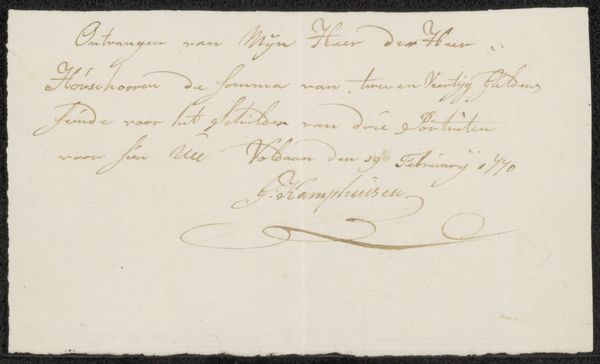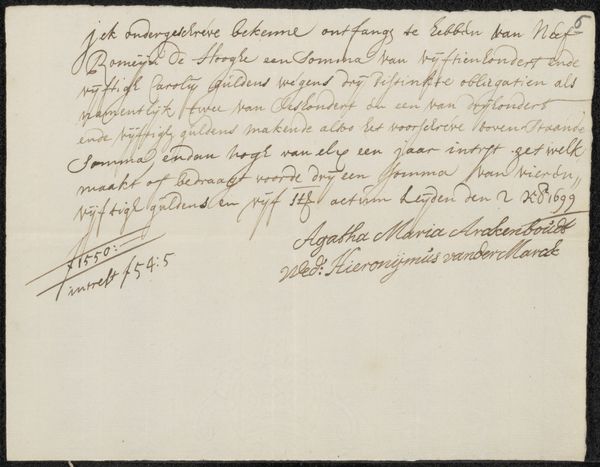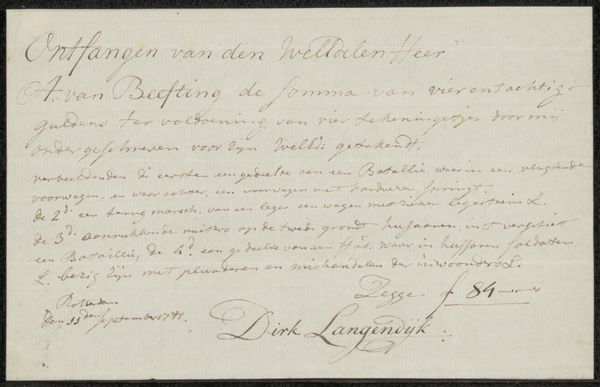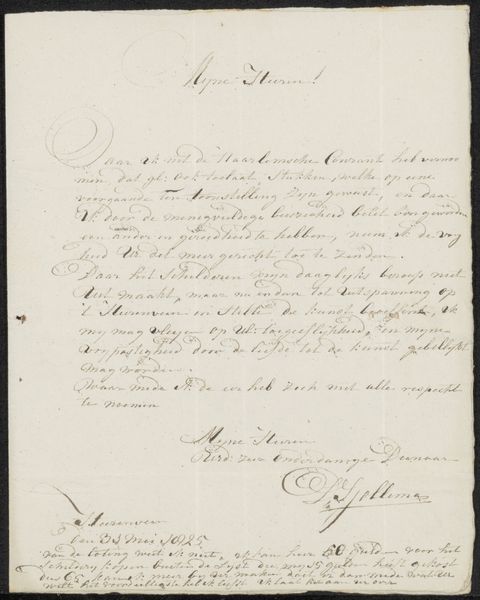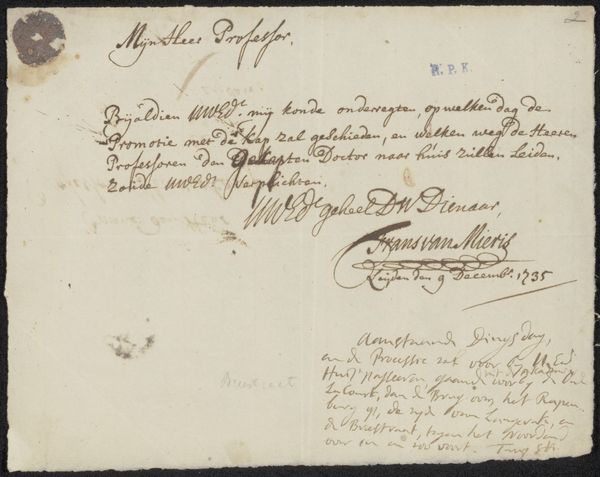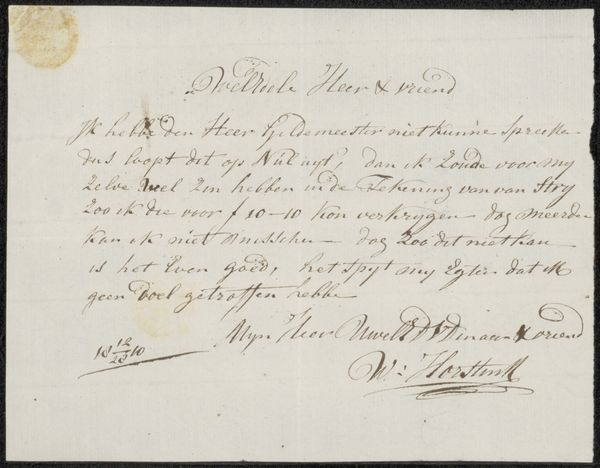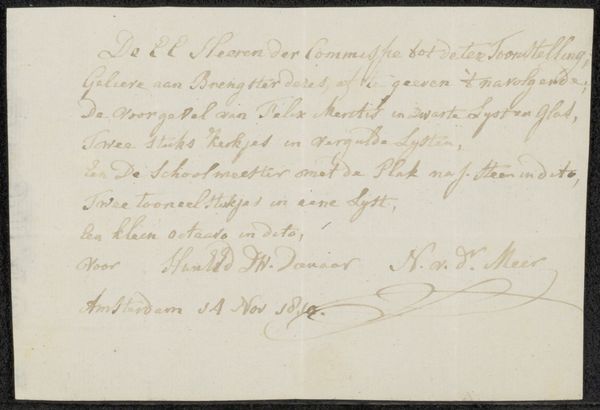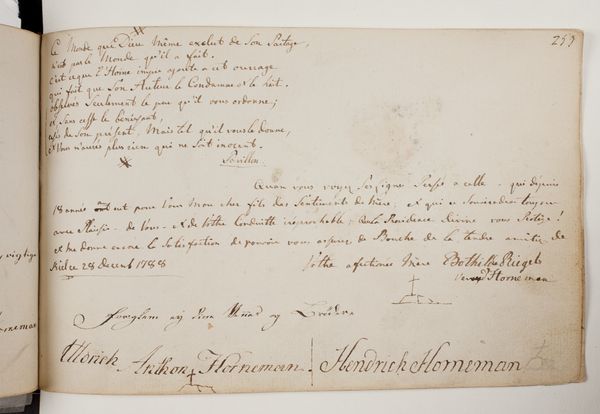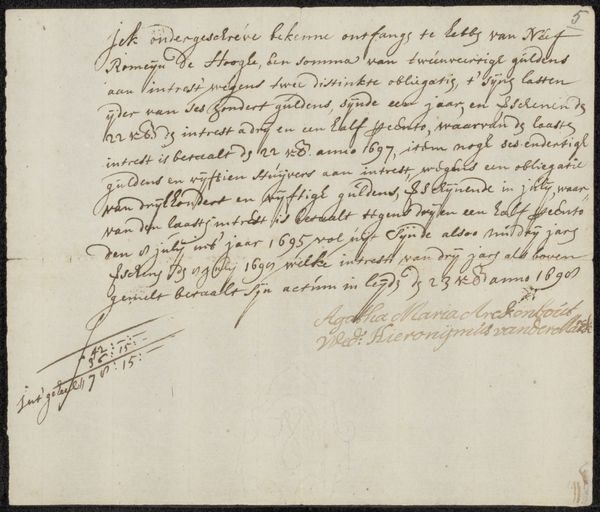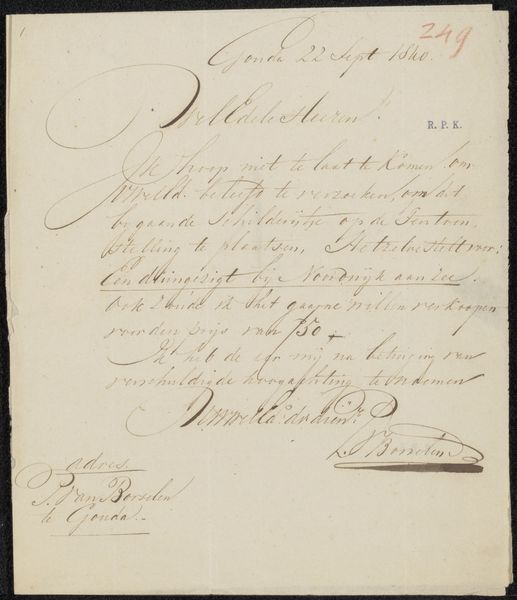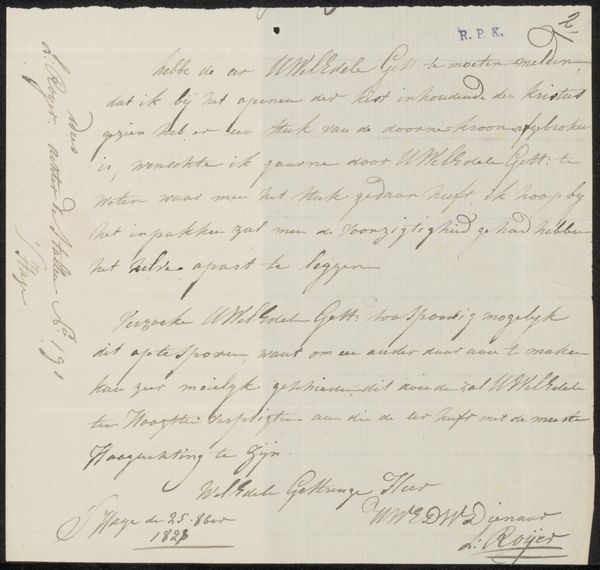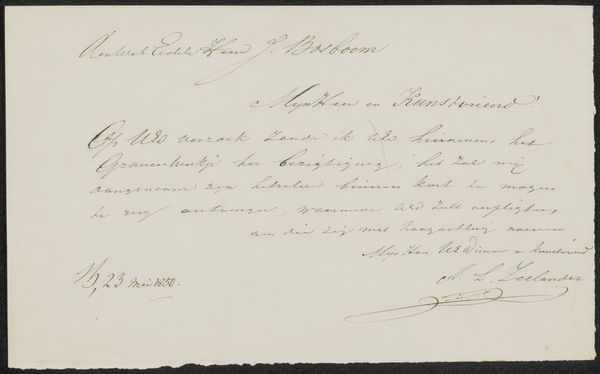
drawing
#
drawing
#
ink paper printed
#
hand drawn type
#
personal sketchbook
#
hand-drawn typeface
#
ink drawing experimentation
#
pen-ink sketch
#
ink colored
#
pen work
#
sketchbook drawing
#
sketchbook art
Copyright: Rijks Museum: Open Domain
Curator: Looking at this artwork, I can’t help but feel like I’ve stumbled upon a secret message, a whisper from the past. It’s entitled "Kwitantie voor Aernout van Beeftingh" – a receipt, made between 1790 and 1796, by Dirk Langendijk. Editor: Immediately, I'm drawn to the ink on paper. The texture almost jumps out – you can see how the fibers of the paper have interacted with the ink, which creates a very handmade feeling. Curator: Absolutely. Imagine the quill gliding across the page, the scratching sound as each word came into being. The act of writing itself becomes performative. But receipts are quite everyday things, and in that light the beautiful flowing lines of the cursive font adds a peculiar feeling to something so mundane. I wonder if it's meant to elevate the document. Editor: It is definitely an object imbued with a strange sense of authority because, without this precise arrangement of language and materiality, the debt wouldn't be valid. Think of the social relationships involved! Someone had to labor for this receipt to even exist. The price of the paper, the preparation of the ink... Curator: I hadn't considered all that labor. It transforms the piece. But I’m curious, too, about Aernout van Beeftingh himself. What was he buying? And from whom? This little paper contains the shadow of lives intertwined. Editor: Perhaps Van Beeftingh was Langendijk’s patron. A look at some of Langendijk's prints reveals a pattern of commissioned artworks of military or naval incidents. The material support must have shaped Langendijk’s production quite considerably. Curator: Interesting! It goes to show how deeply connected artists were with their surrounding circumstances, as much now as back then. It encourages us to think about this as more than just a receipt, but a sort of historical residue of artistic exchange, material exchange and maybe even social exchange. Editor: Right, every little line, the precise handwriting... It all contributes to a historical and artistic document that reflects on materiality and its impact on people and artworks.
Comments
No comments
Be the first to comment and join the conversation on the ultimate creative platform.
